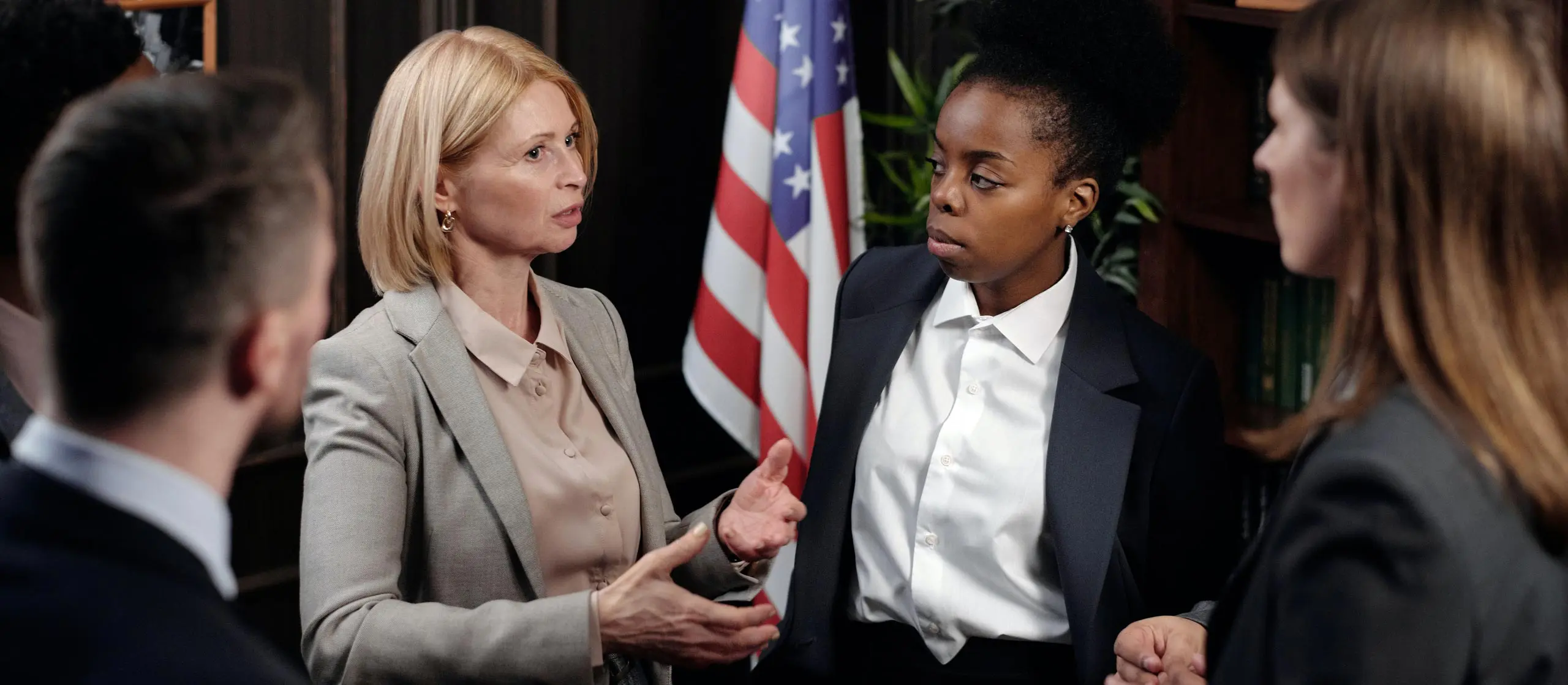Vehicular Manslaughter while Intoxicated
Penal Code 191.5 (a)(b)— Vehicular Manslaughter while Intoxicated
It is a crime under California law to drive a vehicle while under the influence of alcohol, drugs, or a combination of both. Furthermore, the California Penal Code creates a separate offense for when driving under the influence, and committing a negligent act, results in the unlawful killing of another person without premeditation or malice aforethought. — This is called “Vehicular Manslaughter while Intoxicated.”
Penalties for Violating PC 191.5 (a)(b)
Gross Vehicular Manslaughter while Intoxicated is always charged as a FELONY.
Under PC 191.5(a), this is punishable by incarceration in a state prison for four (4), six (6), or ten (10) years and a fine of up to ten thousand ($10,000) dollars.
Sentence enhancements:
You face a state prison sentence of fifteen (15) years to life if you have one or more prior convictions of any of the following offenses
- Vehicle Code 23152 (DUI)
- Vehicle Code 23153 (DUI causing injury)
- Vehicular manslaughter while intoxicated—gross or ordinary
- Penal Code 192 (c)—Gross vehicular manslaughter
Under PC 191.5(b), Vehicular manslaughter while intoxicated—ordinary negligence is a wobbler offense. this means that it can be charged as either a felony or misdemeanor. The penalties of this offense depend on a number of factors. Generally, the penalties will increase depending on the DUI sentencing enhancements, such as prior convictions, a blood alcohol level of .15 or higher, BAC test refusal, or speeding and/or reckless driving.
If you are found guilty of PC 191.5 (b) as a FELONY:
Maximum of four (4) years, two (2) years, or 16 months in state prison and a fine of ten thousand (10,000) dollars. You will also be responsible for paying restitution.
If you are found guilty of PC 191.5 (b) as a MISDMEANOR:
Maximum: One (1) year incarceration in county jail and a fine of up to one thousand (1,000) dollars. You will also be responsible for paying restitution.
Driving Privileges: If you are convicted of gross vehicular manslaughter while intoxicated, then the DMV will revoke your driver’s license for a period of at least three (3) years.

How Can I Be Found Guilty of Drunk Driving and Killing Someone?
Under California law, negligence refers to a person’s failure to use reasonable care. In order for negligence to exist, the defendant must have some duty of reasonable care towards a specific person or group of people. The failure to meet that level of duty is what generally results in damage, injury, or under this statute, death to another.
There are two types of vehicular manslaughter while intoxicated:
- Vehicular manslaughter while intoxicated—Gross negligence under Penal Code 191.5(a)
- Vehicular manslaughter while intoxicated—Ordinary Negligence under Penal Code 191.5(b)
Gross Negligence
Gross negligence is more than just a mere mistake in judgment. In order to convict you of gross vehicular manslaughter while intoxicated, the prosecution must show that your conduct demonstrated very little regard for human life and that it created a substantial risk of death or great bodily injury. You will be accused of violating Penal Code 191.5(a) if:
- You drove under the influence of alcohol, drugs, or both
- While driving under the influence, you committed a misdemeanor, infraction, or otherwise lawful act that might cause death;
- You committed said act with gross negligence; AND
- Your grossly negligent conduct caused the death of another person.
It is important to mention that the “gross negligent act” part is separate from committing DUI itself.
Gross negligence occurs when:
- A person acts in a reckless way that creates a high risk of death or great bodily injury AND
- A reasonable person would have known that acting in that way would create such a risk.
Example:
Joey drinks beer all day long after getting fired from his job that morning. While driving to the liquor store to get more alcohol, he drives 70mph in a school zone, misses the stop sign, and he hits and kills a child crossing the street. Joey will be accused of gross vehicular manslaughter while intoxicated.
Ordinary Negligence
You will be accused of violating Penal Code 191.5(b) if:
- You drove under the influence of alcohol, drugs, or both;
- While driving under the influence, you committed a misdemeanor, infraction, or otherwise lawful act, that might cause death;
- You committed said act with ordinary negligence AND
- Your negligent conduct caused the death of another person.
As mentioned before, the difference between this offense and gross vehicular negligence while intoxicated is the degree of negligence required. Ordinary negligence is the lesser offense of gross negligence and is defined as the failure to use reasonable care to prevent foreseeable harm to oneself or someone else.
It is important to mention that a person who faces a sudden and unexpected emergency situation not caused by that person’s negligence is required only to use the same care and judgment that an ordinarily careful person would use in the same situation even if it appears later that a different course of action would have been safer.
Example:
Ana is heading home from happy hour where she had two drinks. During the drive home, she leans over to change the radio station, and doesn’t notice a sharp metal object that was in the middle of the road. It causes the tire of her car to pop off, and as a result, she spins out of control and crashes head-on into another car. The driver of the other vehicle instantly dies. Ana would be accused of ordinary negligent vehicular manslaughter while intoxicated.
Defenses to Vehicular Manslaughter while Intoxicated
While this may seem obvious, the police could have used unlawful procedures that lead to your DUI conviction, the procedures could be challenged. If you were charged with DUI based on your appearance and/or conduct, the charge can be challenged. Mistaken fatigue or sickness for intoxication. Question the police procedures used in your DUI arrest and investigation in an effort to uncover police misconduct or other unlawful actions.
For example, suppose police turn on their sirens to pull the defendant over, but the defendant does not pull over immediately when some spots are available. If the defendant still pulls over in a safe spot sometime soon after the sirens light up, and only missed the previous spots because they were confused, then that defendant probably did not “specifically intend” to evade the police at any point in the short-lived chase.
To use another example, imagine a defendant who at first decides to try and evade an officer when first told to stop, but changes their mind after driving away for a few blocks and pulls over. In this case, the defendant still “specifically intended” to evade police at some point, and if the other elements are present during that part of the chase, then that defendant will probably be found guilty of evading police.
It can sometimes be hard to argue that some decisions, even ones that are poor decisions, are actually negligent. You may be able to argue that your driving was not different from that of any reasonably careful person. A good defense attorney will explore the possibility of arguing that your behavior was negligent, but not grossly so. Doing so can reduce the consequences and make you eligible to be charged under PC 191.5 (b) instead of PC 191.5(a).
Even if you did act with negligence but it was someone else’s negligence that caused death. Cause and effects in auto accidents can be a challenging task to sort out. There is a chance that the prosecution cannot prove that your negligence was the proximate cause of the victim’s death. It could’ve been the negligence of the victim or a third party or forces beyond your control.
Remember that a person facing a sudden and unexpected emergency situation not caused by that person’s own negligence is required only to use the same care and judgment that an ordinarily careful person would use in the same situation.
Clips of Counsel: Watch and Learn
“Daniel Vaswani, lead attorney at Virtuoso Criminal and DUI Lawyers, explains the complicated process of a DUI arrest and the importance of hiring the right lawyer.”
“Attorney Joe McPeak from Virtuoso Criminal and DUI Lawyers discusses important defense strategies for domestic violence cases.”
“Discover how speaking with an attorney just days before your court date can dramatically impact your chances of release.“
We are Available




